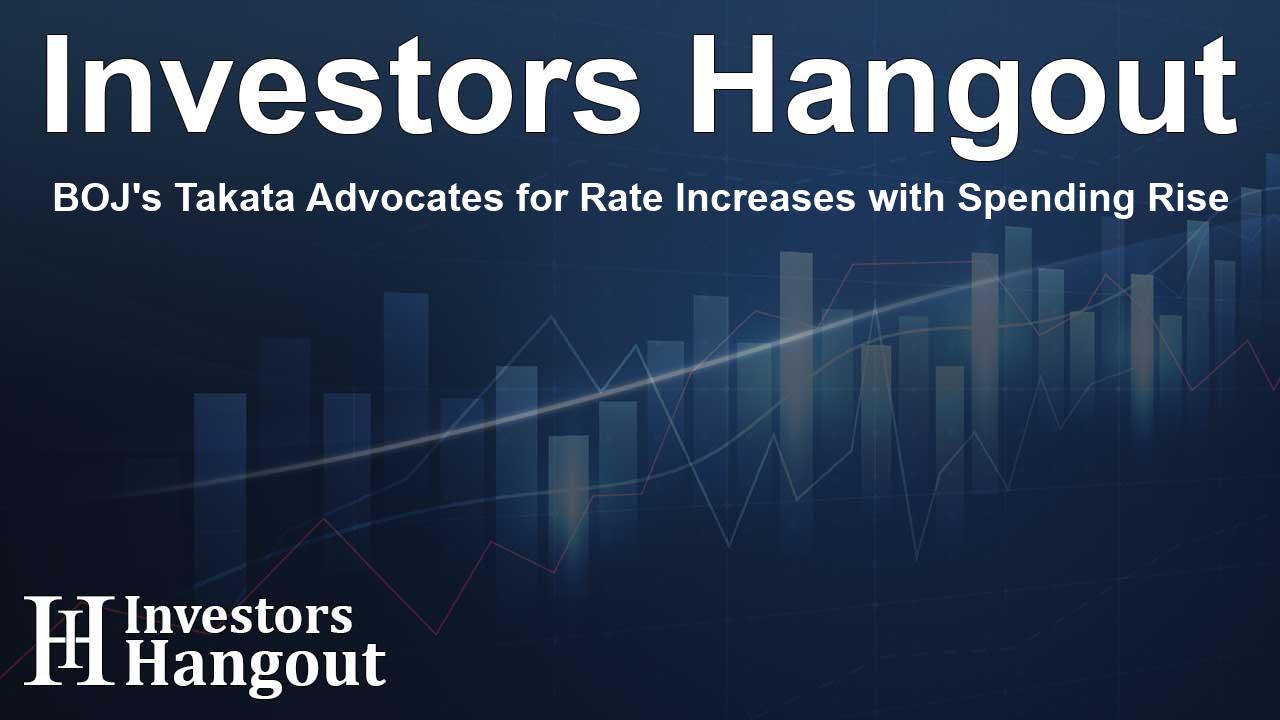BOJ's Takata Advocates for Rate Increases with Spending Rise

BOJ's Stance on Interest Rates: Insights from Takata
Hajime Takata, a member of the Bank of Japan's governing board, has articulated the central bank's viewpoint on adjusting interest rates amidst rising corporate expenditure. His latest comments reflect ongoing analysis regarding inflation and spending trends, pivotal for economic stability.
Corporate Spending and Wages: A Key Indicator
During a recent address, Takata emphasized the importance of observing corporate behavior. He mentioned that should companies persist in elevating their spending and wages, it would necessitate the Bank of Japan (BOJ) to progress towards raising interest rates. The current inflation trajectory is a critical factor in this consideration.
The Impact of Inflation on Economic Policies
Takata explained that if inflation aligns with expectations and corporations continue to push for higher wages while transferring costs through price adjustments, an upward shift in monetary policy may be warranted to counterbalance inflation effectively.
Market Volatility and Policy Implications
Addressing recent market fluctuations, Takata noted significant volatility in early August, which has persisted. This situation demands careful scrutiny of market dynamics and their ramifications on the economy. His remarks underscore the necessity for the BOJ to remain vigilant in the face of potential market disturbances.
Comparative Monetary Policies: A Global Perspective
Notably, as central banks in the U.S. and Europe contemplate rate reductions, Takata cautioned about the lagging effects of their previous monetary tightening. This could pose challenges to Japan's economic landscape, highlighting the BOJ's unique position amidst contrasting global monetary policies. The dichotomy may trigger market instability, necessitating continued observation of both domestic and international developments.
Conclusion: The Road Ahead for the BOJ
Going forward, Takata's insights reflect the BOJ's cautious demeanor regarding interest rates in response to corporate spending. The central bank will need to navigate these waters delicately to ensure economic resilience while fostering stable growth in wages and inflation.
Frequently Asked Questions
What did Hajime Takata say about interest rates?
Takata mentioned that the BOJ must consider raising interest rates if corporate spending and wages continue to increase amidst inflation.
Why is corporate spending important for the BOJ?
Corporate spending is crucial as it signals economic growth and inflation trends, which guide the BOJ's policy decisions.
How has the BOJ's policy changed recently?
The BOJ ended negative interest rates in March and raised short-term rates to 0.25% in July, reflecting economic progress toward its inflation target.
What are the global implications of Japan's monetary policy?
Japan's differing approach to monetary policy compared to the U.S. and Europe may create market volatility and economic challenges.
What are the current inflation expectations?
The BOJ projects that inflation will remain around 2%, but it is crucial to monitor various economic factors that could influence this outlook.
About Investors Hangout
Investors Hangout is a leading online stock forum for financial discussion and learning, offering a wide range of free tools and resources. It draws in traders of all levels, who exchange market knowledge, investigate trading tactics, and keep an eye on industry developments in real time. Featuring financial articles, stock message boards, quotes, charts, company profiles, and live news updates. Through cooperative learning and a wealth of informational resources, it helps users from novices creating their first portfolios to experts honing their techniques. Join Investors Hangout today: https://investorshangout.com/
Disclaimer: The content of this article is solely for general informational purposes only; it does not represent legal, financial, or investment advice. Investors Hangout does not offer financial advice; the author is not a licensed financial advisor. Consult a qualified advisor before making any financial or investment decisions based on this article. The author's interpretation of publicly available data shapes the opinions presented here; as a result, they should not be taken as advice to purchase, sell, or hold any securities mentioned or any other investments. The author does not guarantee the accuracy, completeness, or timeliness of any material, providing it "as is." Information and market conditions may change; past performance is not indicative of future outcomes. If any of the material offered here is inaccurate, please contact us for corrections.